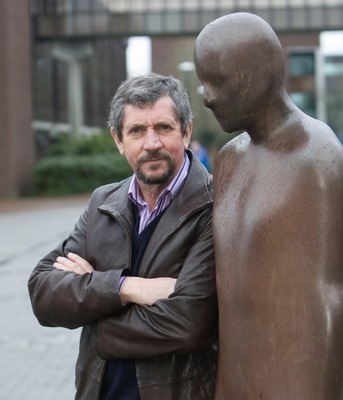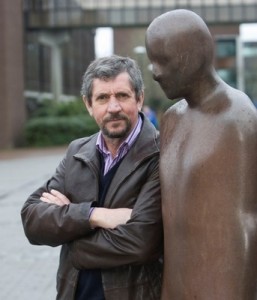A conflict journalist’s personal sense of responsibility, a 4,500 mile trip to simply cross a checkpoint and the complete snub of any recent history in text books were just some of the thought-provoking threads of conversation uncovered during the first ever Teaching Divided Histories conference which has just ended in Derry.
The two-day event welcomed hundreds of delegates and speakers to the Masonic Hall as local, national and international voices gathered to discuss issues of conflict journalism, education and the ever increasing role of digital media in addressing these.
Teaching Divided Histories, an innovative three year project supported by the European Union’s PEACE III Programme managed by the Special EU Programmes Body, is being undertaken by the Nerve Centre and aims to introduce new approaches to the study of conflict into the school curriculum in both Northern Ireland and the Republic of Ireland, and also internationally.
Renowned journalists, teachers, film makers and policy makers were among those in attendance at the conference which discussed, among many other things, the increasing need for young people to benefit from learning about their conflicted and divided histories both here and abroad.
Emma McDermott, Teaching Divided Histories’ Project Manager, felt the event was an important turning point.
She said: “The phenomenal response to the conference this week has proven to us, and organisations throughout Ireland and across the world, that the sharing of experiences and knowledge around contested and divided histories is more important now than ever.
“Teaching Divided Histories has already sparked connections between organisations and individuals around the world and we are delighted to announce an exciting link between Lisneal College and Vlakfontein Secondary School in South Africa who, with the support of the British Council, will share their common experiences of conflict and history through an exciting exchange partnership.
“The event is, we hope, just the tip of the iceberg for both the project and the connections and partnerships made.”
The two-day conference, which was organized by the Nerve Centre and the British Council as part of the City of Culture year, saw some of the world’s most foremost voices speak across a variety of subjects including award winning filmmakers Olly Lambert and Derry’s own Mark McCauley.
Veteran RTE broadcaster Charlie Bird also used his attendance to discuss his prestigious journalism career and made the stunning personal admission that, due to a sickness which forced him home from work early in 1996, he failed to receive an IRA message regarding the Canary Wharf bombing and still feels a personal responsibility for the two deaths which occurred that day.
Other speakers such as Mariane Pearl and Andrew Eaton spoke of their journey in bringing Mariane’s personal story to the big screen while Ed Vulliamy, Senior Correspondent with The Guardian, gave an impassioned delivery of his wartime and conflict experiences from across the world.
Day two of the conference saw the focus shift to conflict education, with representatives from South Africa, Lebanon and India offering personal insights into the role of history and teaching in their home countries.
The event concluded with a shared consensus that the conference was an important marker in approaching the topic of conflict and history and Teaching Divided Histories was praised for its efforts in bringing a positive attitudinal change to the subject.
Tags:







